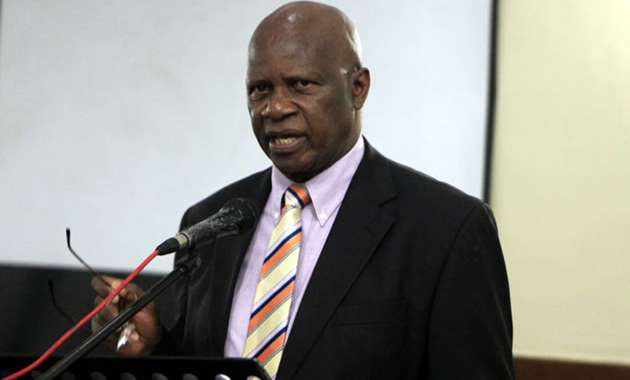Zim on course for IMF, WB funding

Golden Sibanda Senior Business Reporter
GOVERNMENT has asked international financial institutions owed by Zimbabwe to extend financial support to the country soon after it has cleared its arrears, Finance Minister Patrick Chinamasa said.
If all goes according to plan, Zimbabwe could be in line for renewed financial support from international financial institutions within the first half of next year, as it bids to clear all its arrears by April.
Minister Chinamasa made the remarks during his brief appearance on the second day of the 7th edition of Zimbabwe Mining Indaba in Harare yesterday.
He pointed out that the arrears to the IFIs have created a risky country profile resulting in little and expensive external loans to the country. The minister said private firms which are able to secure external loans, access them at a high premium compared to their peers in the region.
Zimbabwe owes external financial institutions a total of $10,4 billion with $4,5 billion of that amount being arrears not paid in over 20 years, thereby raising its risk profile. This, Minister Chinamasa said had blocked fresh credit
Minister Chinamasa last week led a delegation to the International Monetary Fund and World Bank meetings in Lima, Peru, and presented an arrears strategy hugely endorsed by creditors, the minister said.
“We have not been paying our debts. The strategy we are pursuing is to re-engage, primarily, with the three IFIs; AfDB, IMF and World Bank. We are also engaging the European Investment Bank,” he said, adding, “We are moving to engage all these institutions.”
He said no creditor is willing to continue extending credit to a bad debtor, the reason Harare is seeking accommodation with IMF and re-engaging other multilateral and bilateral lenders.
This forms the basis of the decision to work with IMF on country specific reforms such as the Staff Monitored Programme (SMP) to demonstrate commitment to adhere to sound macro-economic policies.
The SMP is meant to rebuild Zimbabwe’s capacity to service future debts. Critically, it provides the platform on which the Government can engage with IMF to chart the roadmap to resuming funding support. But prior to this, the country should clear its arrears.
In terms of the arrears clearance strategy, Zimbabwe expects to have settled $601 million to the African Development Bank, $110 million to IMF and $1,15 billion to the World Bank by April next year.
As such, Harare will use a $600 million arrears clearance loan facility from AfDB, its $130 million special drawing rights from IMF and a cheaper loan from the World Bank to extinguish the arrears.
Minister Chinamasa said Government sought support from the IFIs of loans at lower interest rates and different duration contrary to tenor given for existing loans to enable the country to settle its debt arrears.
This will open the floodgates for fresh funding and curtail huge interest accumulation, which now forms the bulk of the huge debt the country holds at the multilateral and bilateral financial institutions.
At the same time the country committed to work on a country financing programme to rejuvenate production in key sectors of the economy that include agriculture, manufacturing, mining and tourism.
But the finance minister stressed the point that it was critically important the IFIs extend financial support once the arrears are cleared.
This becomes important also if taken from the perspective that most reputable global lenders do not lend to delinquent borrowers who have been condemned by the Bretton Woods institutions.
Minister Chinamasa said he strongly believes that the conversation going on with the IFISs was the answer to the funding crisis rocking the economy; otherwise he would not expend his energy on the initiative.
The debt strategy gathered steam when a committee constituted by the Ministry of Finance and chaired by Reserve Bank governor Dr John Mangudya visited Brussels, Berlin, Rome and Paris to drum up support, before meetings on the sidelines of the meeting held in Peru.
Zimbabwe started facing constraints meeting its obligations to international financiers when its capacity was affected by sanctions imposed by West after the country embarked on the land reform programme.











Comments